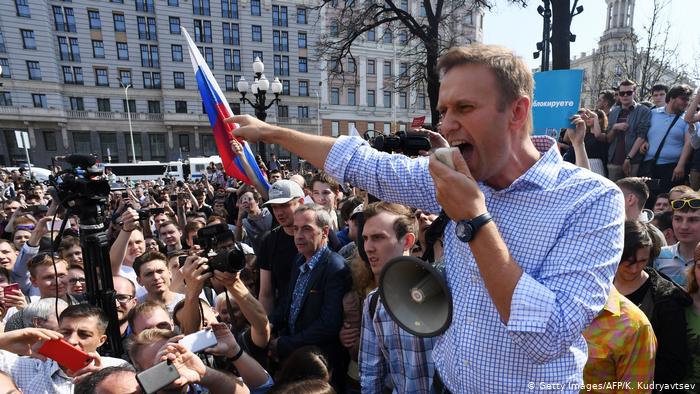Electoral interference, manipulation of energy markets, domestic tyranny, impinging the sovereignty of neighbouring states and now poisoning political opposition. With an extensive list of transgressions underpropping its semblant democracy, Russia continues to foster ties with the west and is still perceived by many as eastern Europe’s figurehead nation. The US’ incessant involvement with the country speaks to the power and influence Putin exudes over his Atlantic counterparts. Following Alexei Navalny’s recent poisoning, Russia’s control on the trajectory of global politics despite the Kremlin’s autocratic tendencies is becoming an urgent matter of concern.
What happened to Alexei Navalny?
Alexei Navalny, an anti-corruption activist and video maker has received urgent medical treatment in Germany for poisoning after being airlifted from Siberia shortly after falling ill. The chemical he was infected with has been identified as Novichok nerve-agent – a lethal toxin typically produced during the Soviet era. The incident has prompted key actors to come forward and condemn the speculated state authorised attack on Navalny.
US and Germany
However, many have been reticent to voice their criticism. Despite it being proven “beyond a doubt” that the chemical caused Navalny’s current condition, President Donald Trump’s reaction went little further than saying: “I don’t know exactly what happened…We haven’t had any proof yet but I will take a look.” Trump’s clear denial illustrates the pervading reciprocity of Kremlin-Washington relations.
The 2019 Mueller report further denotes the mutualistic nature of this political understanding. From appointing Rex Tillerson as his Secretary of State in 2017 to denying the legitimacy of Facebook’s Cambridge Analytica scandal, Trump’s presidency has been encumbered with conflicts of interest involving Russia.
Navalny’s poisoning also resulted in European backlash as German Chancellor Angela Merkel has hinted at issuing sanctions. However, Merkel’s deploring remarks are balanced by avid support for the Nord Stream 2 pipeline that is due to deliver Russian gas to Germany in the near future. Merkel’s actions mirror the lax sentiment Trump has shown towards Russia and demonstrates palpable hypocrisy.
Sharing a sympathetic outlook towards Russia is, evidently, a very common trait amongst key political players in the west. But the question remains, why are democracy’s championing actors allowing Russia to get away with this? Further still, why are they encouraging this behaviour by supporting Russia’s financial endeavours and releasing defensive statements to the press?
The nature of politics
The answer is simple, hypocrisy is an inherent feature of global politics. Having the support of powerful sovereign states is the key to preserving a country’s financial, domestic, and social interests. Throughout the course of history, world leaders have flaunted duplicitous agendas. Obama’s effort to fight “terrorism on a firmer legal footing” was offset by war crime allegations; Trudeau’s pledge to reach zero carbon emissions by 2050 has been countervailed by his endorsement of Alberta’s destructive oil sands project and now Merkel’s support for Nord Stream 2 in spite of Navalny’s poisoning, perfectly demonstrates this political insincerity.

The fact of the matter is that the nations we recognise as advocates of democracy are incapable of upholding these values whilst also protecting national interests. Therefore, despite its authoritarian actions, Russia’s economic leverage, vast social influence, and stockpile of over 7000 nuclear warheads, make it a very attractive ally. Western democracies cannot compromise federal targets in order to preserve consensus in other nations simply because it is not feasible to sever strategic alliances with states such as China or Russia without losing political standing. This is also true for many countries in other parts of the world.
Nevertheless, innate political hypocrisy calls into question the government’s concern for individual welfare. Diplomatic alliances are in some respects very transactional as they’re often backed at the expense of democracy and human rights. So, can we expect our politicians to protect individual freedoms as well as achieving integral economic and political objectives?
Conflicting domestic and foreign aims are issues that countries ensnared in international alliances will inevitably face. So, when looking at why the west is succumbing to Russia’s influence, we need to bear in mind the conditional and subjective nature of politics and interstate relations. The countries we see as democratic strongholds are not always devoted to exporting their ideology elsewhere though they often appear to be. Therefore, support for Russia, regardless of un-democratic behaviour like poisoning political opposition, is likely to continue so long as the country remains powerful.


